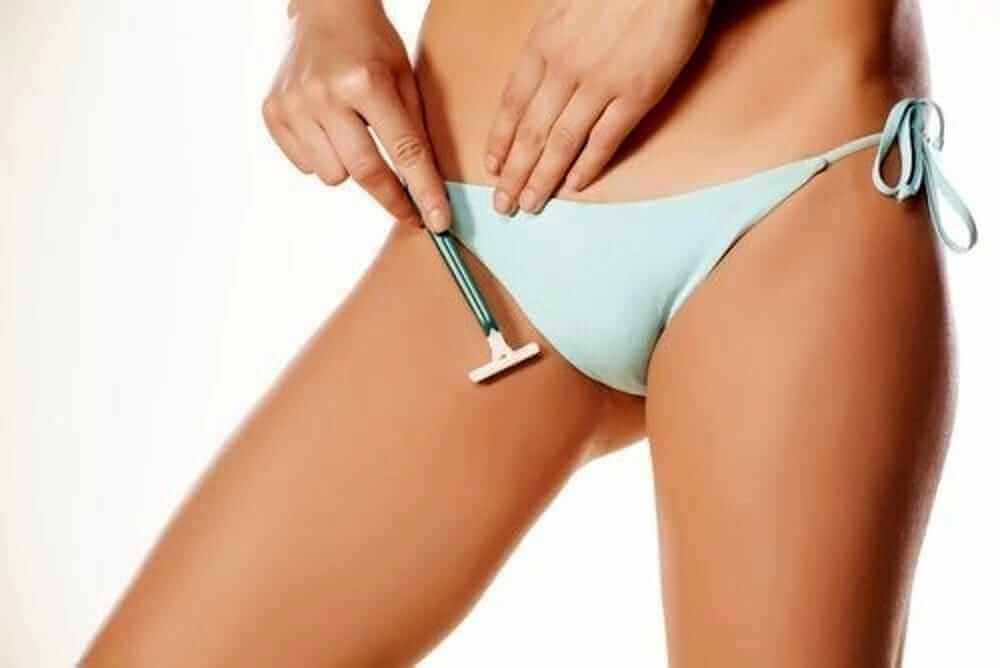The Best Intimate Hygiene Tips


Reviewed and approved by the doctor Maricela Jiménez López
Your intimate hygiene is very important, since it helps you maintain good genital health. Having proper intimate hygiene will prevent infections and disease that affect women.
However, going to extremes is never good. You can’t neglect your hygiene, but you also shouldn’t be obsessed with it. In fact, both cases can have bad consequences for your private area.
We’ll tell you what to do and what not to do with your personal hygiene and daily life in this article. That way, you can prevent diseases or annoying infections.
The Best Intimate Hygiene Tips
1. Use the Right Soap

To wash your intimate area, we recommend using soap without parabens and with neutral pH. This is because very strong soaps could change your natural acidity levels and cause infections. Therefore, you can use ordinary soap on the rest of your body, but avoid using it in your intimate area.
Nowadays, there are special soaps for female intimate hygiene on the market, and we recommend choosing one. They’re gentler with your skin, and they also help eliminate bad odors.
2. Washing Yourself Once Is Enough
Washing your private area once per day is enough to keep it clean and free of bacteria. Don’t forget, excessive cleaning can also alter your pH, making you more vulnerable to bacteria and fungi.
If you’re sexually active, we recommend washing your intimate area before and after sex. During sexual activity, you can easily contract bacteria. Therefore, wash yourself as soon as possible to prevent urinary tract infections.
Discover: 9 Dangers of Wearing Tight Clothing
3. Avoid Wearing Tight Clothing
Clothing that’s too tight in your intimate area can cause irritation. If your clothes constantly rub, not only will you feel uncomfortable, but it will also increase sweating. Therefore, it can cause bacteria and bad odors. This generally happens with very tight jeans.
When clothing is tight and rubs against your skin, it could cause burns or minor injuries, which could then cause infections. Normally, the vulva is full of bacteria. However, in constant humidity and friction, your risk of infections increases.
4. Avoid Douching
Vaginal douching is often bad for women’s health. The only time we recommend using these products is when your doctor prescribes it.
Vaginal douches alter your vaginal flora, increasing risk of infections. Therefore, you should avoid them. Your intimate area is very delicate and has a specific pH level. Any product you apply to it could alter it.
5. Clean Yourself in the Right Direction
When you go to the bathroom, do you wipe from back to front, or from front to back? Wipe from front to back. Otherwise, you will drag bacteria from your anus to your urinary tract.
This could cause infections like cystitis, which is typically caused by by E. Coli bacteria lodged in the gastrointestinal tract. If this infection has complications, it could even make its way up to the kidneys. Therefore, it’s important to prevent it through good intimate hygiene.
6. Take Care of Your Intimate Hygiene During Your Period
Although it sounds a bit obvious, you should be more careful with your intimate hygiene while you’re on your period. In addition to taking care of the bad smells that usually come with menstruation, keep in mind that the level of acidity decreases. Therefore, this is an ideal scenario for infections.
As we said before, it’s not necessary to wash your intimate areas many times a day. However, it’s essential to change your pads or tampons every 4 to 6 hours.
7. Don’t Wash Your Intimate Area with Sponges
Avoid rubbing your vulva with sponges. These tools are clusters of bacteria that you should avoid at all costs. In addition, your intimate area’s skin is very sensitive. If you rub it too hard, you could irritate it. Later, this could cause infections.
We recommend that you wash this area with your own hands, as long as they are clean. Avoid using your nails while cleaning, since you could hurt yourself and cause infections.
8. Shave Very Carefully

When shaving, you must be careful to not cause injuries to your intimate area. Open wounds attract bacteria and infections. If you wax yourself or use a different method, you should also be careful to not cause irritation.
Additionally, we recommend not eliminating pubic hair completely. In fact, it actually protects you from lots of bacteria. Without it, you increase your risk of getting an infection.
9. Wear Cotton Underwear
Cotton underwear absorbs moisture and promotes ventilation. Therefore, it will keep you cool and free from bacteria. We don’t recommend nylon underwear, since it doesn’t ventilate well and can trap bacteria.
Have you ever noticed a bad smell from your intimate area?
It could be due to nylon underwear, or underwear made of anything besides cotton. The key to preventing bad odors is to leave no room for moisture.
Follow these simple hygiene tips, and you’ll see immediate results. You will feel fresher, healthier, and smell better, too. You can prevent infections this way, so make sure to take special care of your intimate hygiene.
All cited sources were thoroughly reviewed by our team to ensure their quality, reliability, currency, and validity. The bibliography of this article was considered reliable and of academic or scientific accuracy.
- Cuevas, A., Celis, C., Herrán, S., Hernández, I., Paredes, O., & Paradas, A. (2010). Higiene íntima femenina y vaginosis bacteriana. Encuesta epidemiológica latinoamericana 2008. Revista Colombiana de Obstetricia y Ginecología.
- Guaschino S , Benvenuti C , SOPHY Study Group. SOPHY project: an observational study of vaginal pH, lifestyle and correct intimate hygiene in women of different ages and in different physiopathological conditions. Part II. https://europepmc.org/abstract/med/18854801
- Chen, Ying. Bruning, Elizabeth. Rubino, Joseph. Role of female intimate hygiene in vulvovaginal health: Global hygiene practices and product usage. https://doi.org/10.1177%2F1745505717731011
This text is provided for informational purposes only and does not replace consultation with a professional. If in doubt, consult your specialist.








